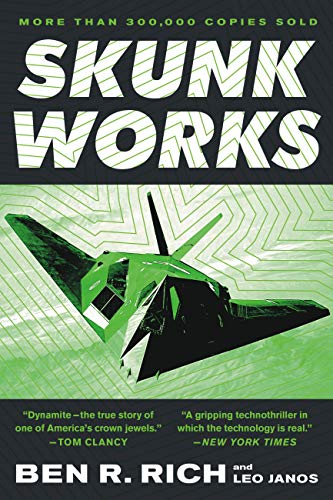Linda Xie
Co-founder @ScalarCapital. Previously Product Manager @Coinbase. Advisor @0xProject
Book Recommendations:
“Crazy way that it was clear Lockheed's stealth aircraft worked. Bats couldn't detect the plane with their sonar. The planes evaded radar technology through a mix of structural design and radar-absorbent coating. (from the fantastic book Skunk Works h/t @maksim_s) https://t.co/U5bxpDoI5H” (from X)
The onetime director of Lockheed's Skunk Works, the top-secret facility that developed the U-2 spy plane and the stealth fighter, reveals the behind-the-scenes drama involved in the development of the military's aerial technology. 50,000 first printing.
“Really enjoyed the book "A Crack in Creation" co-authored by Jennifer Doudna, one of the scientists who discovered CRISPR. It goes over the history of gene editing, how it works (gets pretty technical), fascinating experiments, and future implications https://t.co/lM36xJ1BLL” (from X)
A trailblazing biologist grapples with her role in the biggest scientific discovery of our era: a cheap, easy way of rewriting genetic code, with nearly limitless promise and peril. Not since the atomic bomb has a technology so alarmed its inventors that they warned the world about its use. Not, that is, until the spring of 2015, when biologist Jennifer Doudna called for a worldwide moratorium on the use of the new gene-editing tool CRISPR—a revolutionary new technology that she helped create—to make heritable changes in human embryos. The cheapest, simplest, most effective way of manipulating DNA ever known, CRISPR may well give us the cure to HIV, genetic diseases, and some cancers, and will help address the world’s hunger crisis. Yet even the tiniest changes to DNA could have myriad, unforeseeable consequences—to say nothing of the ethical and societal repercussions of intentionally mutating embryos to create “better” humans. Writing with fellow researcher Samuel Sternberg, Doudna shares the thrilling story of her discovery, and passionately argues that enormous responsibility comes with the ability to rewrite the code of life. With CRISPR, she shows, we have effectively taken control of evolution. What will we do with this unfathomable power?
New York Times Book Review Editor’s Choice SHORTLISTED FOR THE 2015 FINANCIAL TIMES AND MCKINSEY BUSINESS BOOK OF THE YEAR A New York Times technology and business reporter charts the dramatic rise of Bitcoin and the fascinating personalities who are striving to create a new global money for the Internet age. Digital Gold is New York Times reporter Nathaniel Popper’s brilliant and engrossing history of Bitcoin, the landmark digital money and financial technology that has spawned a global social movement. The notion of a new currency, maintained by the computers of users around the world, has been the butt of many jokes, but that has not stopped it from growing into a technology worth billions of dollars, supported by the hordes of followers who have come to view it as the most important new idea since the creation of the Internet. Believers from Beijing to Buenos Aires see the potential for a financial system free from banks and governments. More than just a tech industry fad, Bitcoin has threatened to decentralize some of society’s most basic institutions. An unusual tale of group invention, Digital Gold charts the rise of the Bitcoin technology through the eyes of the movement’s colorful central characters, including an Argentinian millionaire, a Chinese entrepreneur, Tyler and Cameron Winklevoss, and Bitcoin’s elusive creator, Satoshi Nakamoto. Already, Bitcoin has led to untold riches for some, and prison terms for others.


